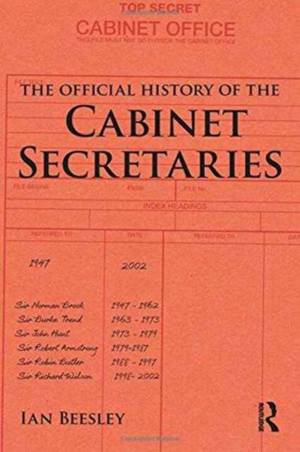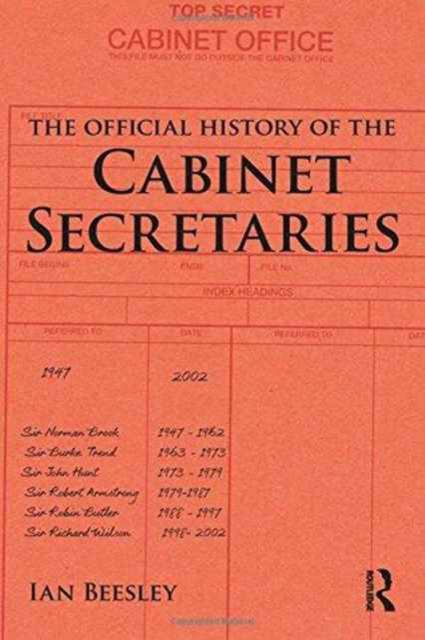
- Retrait gratuit dans votre magasin Club
- 7.000.000 titres dans notre catalogue
- Payer en toute sécurité
- Toujours un magasin près de chez vous
- Retrait gratuit dans votre magasin Club
- 7.000.0000 titres dans notre catalogue
- Payer en toute sécurité
- Toujours un magasin près de chez vous
Description
This book is the official history of British Cabinet Secretaries, the most senior civil servants in UK government, from the post-war period up to 2002.
In December 1916 Maurice Hankey sat at the Cabinet table to take the first official record of Cabinet decisions. Prior to this there had been no formal Cabinet agenda and no record of Cabinet decisions. Using authoritative government papers, some of which have not yet been released for public scrutiny, this book tells the story of Hankey's post-war successors as they advised British Prime Ministers and recorded Cabinet's crucial decisions as the country struggled through the exhaustion that followed World War II, grappled with a weak economy that could not support its world ambitions, saw the end of the post-war economic and social consensus and faced the 9/11 attack on the Twin Towers symbol of Western dominance. It looks at events through the eyes of politically neutral senior civil servants, the mandarins of Britain. It shows how the dramatic foreshortening of timescales and global news have complicated the working lives of those who daily face the deluge of potentially destabilising events - the skills required to see dangers and opportunities around corners, when to calm things down and when to accelerate action; why secrecy is endemic when government comes close to losing control or when political ambition threatens self-destruction.
This book will be of great interest to students of British politics, British history and British government.
Spécifications
Parties prenantes
- Auteur(s) :
- Editeur:
Contenu
- Nombre de pages :
- 736
- Langue:
- Anglais
- Collection :
Caractéristiques
- EAN:
- 9781138188617
- Date de parution :
- 22-11-16
- Format:
- Livre relié
- Format numérique:
- Genaaid
- Dimensions :
- 156 mm x 234 mm
- Poids :
- 1202 g

Les avis
Nous publions uniquement les avis qui respectent les conditions requises. Consultez nos conditions pour les avis.






